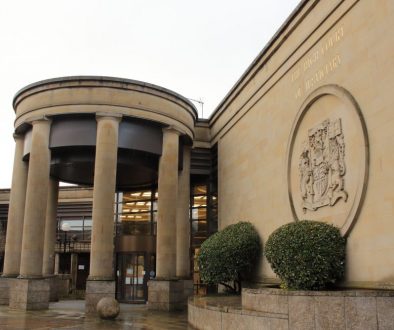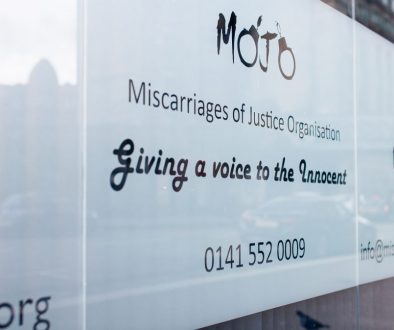Not Innocent Enough?
What, exactly, is the presumption of innocence? How can we claim it as a fundamental of our justice system when our courts not only don’t recognise innocence as a concept, but they are powerless to find it, or to declare it?
“Innocent” isn’t one of the options offered to the finders of fact in our courts – the jury where there is one, or the magistrates and judges. Instead of an active declaration of innocence, the best you can achieve is a passive assertion that you’re not legally guilty. Which isn’t the same. It’s not even close.
There’s an interesting insight there into the nature of the beast. The unfortunate reality is that your innocence remains intact only up to the point at which you’re accused. At that point the question becomes simply one of whether, or not, your guilt can be proved as a matter of law. If it can’t, does your acquittal make you innocent? Apparently not. You’re simply someone whose guilt couldn’t be proved. This, bizarrely, is held up as an example of the fairness of our justice system. And while it’s proudly hailed as the product of the presumption of innocence, your innocence has actually been stripped away from you. Suspicion and stigma follow you forever. You’re not innocent enough. And this because, and only because, someone accused you.
In March 1991 the Court of Appeal finally quashed the utterly discredited convictions of the Birmingham Six, jailed for life in 1975. The court learned that the convictions founded on police brutality, forced confessions, falsified evidence, suppressed evidence and entirely fictitious forensics. The Crown denied none of this, and didn’t contest the appeal. You’d be forgiven, then, for thinking that the Six were entitled to be considered innocent. Fast forward 26 years to the resumed inquest into the Birmingham bombings, an inquest itself largely the result of Paddy Hill’s tireless determination that the truth should be known. The burning question, both for the Six and for the families of the victims, is “Who actually planted the bombs?” In excluding that crucial question from the inquest’s consideration, the coroner followed the advice of Counsel for the West Midlands Police, Counsel for the Police Federation, and Counsel to the Inquest. The latter two of these learned and senior lawyers were, however, at pains to insist that the acquittal of the Six did not amount to a declaration of their innocence. The nonsensical result of all this is not simply that the Birmingham Six are still, officially, in the frame. This will be the last judicial word on the subject; the Six are the only ones who will ever be in the frame.
Sam Hallam and Victor Nealon, both of whom we support, are currently waiting for the UK Supreme Court to decide whether they’re entitled to compensation for long periods of wrongful imprisonment. That this should even be in doubt is the grotesque consequence of a legislated requirement – s133 of the Criminal Justice Act 1988 – that they prove their innocence. That they were each exonerated by due legal process isn’t, apparently, enough. That’s about as far removed from a presumption of innocence as to amount, in reality, to a presumption of guilt.
Here in Scotland there’s a further factor which complicates matters, and not in a good way. We have our own version of the third way – the “Not Proven” verdict. This is a verdict that unashamedly, and by design, attaches suspicion to an acquittal. It says “we think you did it, but the Crown hasn’t been able to fully prove it.”
The widely held perception – encouraged, it must be said, by an uncritical press – is that this is an advantage enjoyed by the accused in Scotland. It makes it harder, so the story goes, for the Crown to convict the guilty, and easier for the guilty to escape justice. The rationale is that it’s an extra way to “get off”. If that’s how you see it, consider this: in every other developed system the hapless recipient of a Scottish “Not Proven” would receive, by definition, a “Not Guilty”. Where a prosecuting authority, with all its resources and despite its best efforts, can’t prove guilt beyond a reasonable doubt – in plain words, where the jury can’t be sure of guilt – the prosecution has failed in its task. No ifs, no buts. An unqualified acquittal is, or should be, your absolute right. The “Not Proven” verdict is a denial of that right. It is a denial of justice, pure and simple.
Here at MOJO we say your rights should go further. We have, we’re told, a presumption of innocence. We’re told it’s the cornerstone of our justice system. In reality this is, to borrow a phrase from Hamlet, a principle more honoured in the breach than in the observance. To be more than just a nice idea, the presumption of innocence should be at the very heart not just of our theory, but of our practice. Acquittal, whether at trial or at appeal, should be followed by a declaration of innocence. The argument most commonly deployed against this is that, generally, innocence hasn’t been proved. Well, no. But it doesn’t have to be proved. That’s the whole point of the presumption of innocence. It is surely simple logic that, if my innocence hasn’t been disproved, I never lost it in the first place.



